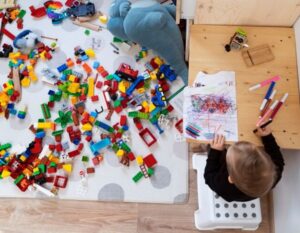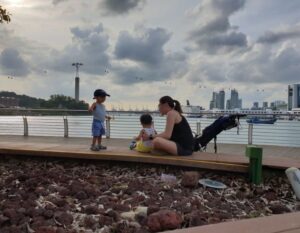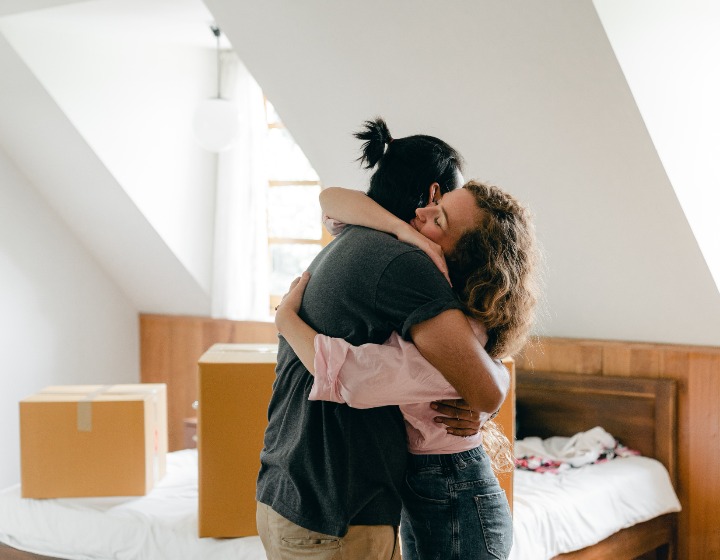
Worried about not getting your rental deposit back? Here’s what you should do before you rent to safeguard your security deposit, how to prep before the end of your lease, and what your options are if your landlord unfairly withholds your rental deposit
If you are renting or thinking about renting a family-friendly condo in Singapore but have questions about security deposits, fellow mama and realtor, Nadia Ederer has the answers.
It seems you can’t get through reading a week’s worth of posts on any expat forum anymore without a sobering warning from someone who’s gone through the experience of losing their rental deposit to a seemingly heartless and unreasonable landlord. It’s hard not to be concerned as it almost seems a given that one will lose one’s rental deposit – so what can you do to make sure there’s the least possible chance of such a horror happening to you and your family? Most of what you can do starts right from the beginning. Read on and apply the tips below to safeguard your rental deposit as closely as possible!
Read More: Why Are Family Rentals in Singapore So Expensive Right Now?
What is a security deposit?
A security deposit is essentially a refundable deposit paid up at the start of the lease by the tenant – usually one to two months depending on the length of your lease. This is to ensure that the landlord has some form of assurance that the tenant will abide by the terms of the lease agreement. Sounds fair enough so far, right? The idea is that, if the tenant does abide by the terms of the lease agreement and leaves any of the landlord’s goods & property undamaged, the rental deposit should be returned in full to the tenant at the end of their lease term.
What makes it OK for a landlord to withhold this rental deposit?
There are a number of reasons that make it completely legal for the landlord to withhold this money, in part or whole:
- To repair or replace any damaged property or furnishings in excess of fair wear and tear
- To restore premises to a tenantable condition
- Ensure there are no outstanding rent or utility bills by the end of the lease
- When the lease is broken but not in accordance with terms laid out in the lease agreement
- And any other specific conditions laid out in your tenancy agreement
So if I just make sure I don’t breach the terms in the tenancy agreement, I’m good?
Yes – in theory, you should be. Unfortunately, there have been cases in which landlords unreasonably withhold this money, under the guise of one of the reasons above. So what can you do to make sure this doesn’t happen to you?
1. Always go through the terms & conditions of the contract before signing
Look out for unreasonable clauses and responsibilities that don’t make sense before you sign off on the tenancy agreement. Ideally, to avoid disputes, it is best to have down in writing what exactly the security deposit can be used for.
For example, commonly fair wear and tear (due to reasonable and everyday use) should be normal and not reimbursable against the security deposit. So make sure this is explicitly mentioned in the tenancy agreement in case the landlord uses any fair wear and tear as a reason to withhold your deposit.
2. Take photo evidence of the property’s pre-existing condition before moving in
To avoid he-said-she-said situations, photo documentation is key. Also, make sure to have the landlord agree and sign off on this so it cannot be contested in the future. While you can do this yourself, a better option would be to pay for professionals to provide a Property Condition Report for more thorough documentation. For a standard three-bedroom apartment, this can range between $300 and 400. It may seem like a lot of money for taking some photos, but consider it insurance against losing anything from $5000 to $10,000 or more in rental deposit!
3. Be prepared for various lease-breaking scenarios
Besides losing your security deposit due to damaged property, you can also lose it if you break your lease outside of the agreed terms of the tenancy agreement. For example, if you have signed a two-year lease without any exit or diplomatic clauses, and you need to break the lease for whatever reason (even valid ones), this is considered a breach of the agreement. In order to prevent losing your rental deposit in these scenarios, always ensure you have a solid diplomatic clause in your agreement that allows you to break the lease if your job is affected or if you have to move overseas. Diplomatic clauses are usually only valid 12 months into the lease – but this can be negotiated. If you can, try to negotiate a reasonable exit clause too.
4. Request for a pre-handover joint inspection
Don’t wait for the handover day to jointly inspect the property with the landlord or agent. Propose doing this a couple of weeks before the official handover so that any disagreements can be resolved without stress and anxiety since you’ve planned for a buffer period. Left too close to the moving out date, you could potentially be looking at a more expensive bill to solve issues – given the tight timeframe or if left up to the landlord’s own discretion.
5. Engage external parties
Despite being the most compliant tenant that ever walked the Earth, what if you have been unfortunate enough to meet an unscrupulous landlord who wrongfully holds your rental deposit anyway? You do have some recourse – but these measures are better and will go smoother if you’re still here in the country. So as an extra tip, make sure all these matters are settled before you leave the country! Here are some steps you can take with the help of third parties:
- Mediation via the Singapore Mediation Centre or the Consumers Association of Singapore (CASE) can help to resolve any potential miscommunication between yourself and the landlord.
- For claims of less than $10,000: You can consider bringing your dispute to the Small Claims Tribunal
- For claims more than $10,000: You can opt to proceed with legal proceeds via the Civil Courts
Need guidance around buying, selling or renting property in Singapore? Follow Nadia on www.instagram.com/dreamhomessg!
Want more property know-how? We’ve got you covered!






 View All
View All





 View All
View All









 View All
View All







![[𝗦𝗔𝗩𝗘 𝗧𝗛𝗜𝗦] 𝗙𝗿𝗲𝗲 𝗔𝗰𝘁𝗶𝘃𝗶𝘁𝘆 𝗙𝗼𝗿 𝗞𝗶𝗱𝘀 𝗪𝗵𝗼 𝗟𝗢𝗩𝗘 𝗙𝗶𝗿𝗲𝘁𝗿𝘂𝗰𝗸𝘀! 🚒🔥
Skip the usual mall stroll and check out the Civil Defence Heritage Gallery! It’s free, air-conditioned, and housed in Singapore’s very first fire station, just across from Funan Mall.
Spanning two full floors, the gallery dives into Singapore’s firefighting history, major rescue missions, and the evolution of the SCDF. There are interactive exhibits, immersive displays, and even emergency preparedness tips for the public.
Bonus: Selected fire stations also host Saturday morning open houses with guided tours where you can watch fire gear demos, meet firefighters, and see those high-pressure water sprays in action!
𝗛𝗼𝘄 𝗺𝘂𝗰𝗵? FREE
𝗪𝗵𝗲𝗿𝗲? 62 Hill St, Singapore 179367
𝗢𝗽𝗲𝗻𝗶𝗻𝗴 𝗵𝗼𝘂𝗿𝘀? 10 am–5 pm (Closed on Mondays)
Comment “Fire” or link in bio for more details!
Tag your parent crew and plan your next adventure with the little ones! 👨👩👧👦💥
.
.
.
.
.
.
.
#SGFireStation #SCDFGallery #ThingsToDoWithKidsSG #FreeFamilyFun #SGParents #KidFriendlySG #FiretruckLovers #MuseumAdventure #SCDF #HeritageGallery #SGMums #FamilyWeekendSG #LearningThroughPlay #SingaporeWithKids](https://www.sassymamasg.com/wp-content/plugins/instagram-feed/img/placeholder.png)
